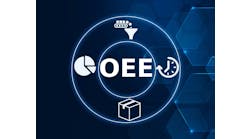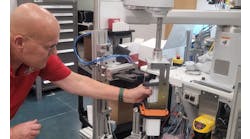One child is trained to appease their younger sibling. As a result, the younger child just becomes more demanding, making the older child more submissive. But such acquiescence pleases parents, which the older child is seeking to do. The two children learn that playing those different roles is the way to get what they want. When they become professionals, the younger’s “way” is to aggressively butt in to take what others might be about to do. It may be good defensive behavior on a basketball court or soccer field, but not in a team-oriented, collaborative, professional environment. The older seeks to comfort and save less-capable employees who find the work too hard. This diverts talent, and also undermines the organization.
Another child is very smart, and his parents encourage that development by praising him for what he knows or creates. Of course, this personal affirmation is supported by teachers during his 16 school years. So, the natural way for this young professional is to demonstrate how much he knows and how creative he is. But success is not about what you learn, it is about what you contribute; and innovation is not about the creativity, it’s about the practicable solutions. The enterprise doesn’t want a person who wastes others’ time by either showing how much they know, or making them pay attention to their creative view. Such traits are counter to team productivity.
A third child is also very talented, and likes to build clever things with blocks, magnets and structural toys. The parents don’t want her to have excessive personal pride; so, while they admit that the thing is good, they also point out the structural or functional deficiency. And they ask the child, “How could it be better?” (fewer parts, stronger, more colorful, etc.). Of course, nothing is perfect. The child learns to bring creations to the parents with a ready answer as to what the deficiency is, because she is rewarded for doing so, and practices this way for 22 years. Then, when presenting projects to the organization, she emphasizes aspects of incompleteness or inefficiency, undermining her career success and all of the positive aspects of what would have been a fully acceptable project.
Each employee is simply behaving in their natural “way.” Some term it a personality, but it’s mostly a childhood-acquired behavior, developed as the child discovers how to manipulate the system to their best advantage. As an adult, they can’t see that their behavior is just an optional way of acting, because it’s their accustomed and comfortable way. They’ve relied on it to bring childhood success, but it undermines their own realization within the collaborative, professional environment.
I suspect every one of us acquired behaviors in the childhood process of finding our way that are dysfunctional for us as adults. We’re blind to our automatic use of them, and to the impact it has on our functionality within the enterprise. We don’t understand that our approach is just the result of childhood choices. Further, the accomplishments by age 25 or 30 (degree, career, promotion, family, house) often leads one to think they have finally arrived at complete adulthood, diverting them from seeing the true work left to become what they can be. By contrast, know that you can grow.
Working harder would mean digging in deeper to those dysfunctional behaviors. Working smarter would mean shedding them, and acting differently. There are two questions here. One is, “How can you know what to shed when the behavior is so ingrained that you think it’s natural, and as necessary as breathing?” As an answer, ask others about what they see in you. This doesn’t have to be just in an annual appraisal session from your supervisor.
The second question is, “How to act differently, and not violate your values.” First off, behavior is mostly all acting. We all have similar biological bodies and mental intellect, but we acquired a personality in the childhood role we fell into. So, acting one way or another is not a violation of your values, it is just a way. The reason for your particular way isn’t based on adult or professional values or ethics, but on a child seeking to maximize personal gain within a particular environment. Being true to yourself sounds like a virtuous thing, but not when it’s a defense of the privilege to retain behaviors chosen by the kid you once were.
When seeking to rise above counterproductive behaviors, don’t try to change too many aspects—you’ll confuse yourself. And, don’t think behavior change will be an instant thing. You’ve taken many years to develop and refine your manner. Use the guidance of others (peers, supervisors and subordinates) to see what they see. When you understand it and can identify it by yourself, seek to act in an alternate manner.
Your potential is not just about technical skill. Become what you can become in all aspects.
The rest of us can help our friends become better. However, your way may be just as dysfunctional as theirs. Don’t think yours is “the way.” (Unfortunately, those who are affirmed by the enterprise can easily fall into that self-distortion.) Help others understand the impact of their way on the enterprise.
Also, recognize that making personal change is uncomfortable and awkward. (Do you remember being taught a new way to hold a baseball bat, golf club or football? I actually switched from right-handed batting to left-handed because it was easier to learn new patterns left-handed than to undo bad right-handed habits). The new way will feel risky to anyone trying to change. Be kind. Create an environment that is a safe place for your friends to share confidences and explore alternate acting roles. It will make your workplace better.






